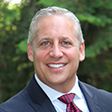Help Get Your College Grad Out of Your House and Into a Job
Guiding your children toward good careers can help them (and you) gain financial independence.

Profit and prosper with the best of Kiplinger's advice on investing, taxes, retirement, personal finance and much more. Delivered daily. Enter your email in the box and click Sign Me Up.
You are now subscribed
Your newsletter sign-up was successful
Want to add more newsletters?

Delivered daily
Kiplinger Today
Profit and prosper with the best of Kiplinger's advice on investing, taxes, retirement, personal finance and much more delivered daily. Smart money moves start here.

Sent five days a week
Kiplinger A Step Ahead
Get practical help to make better financial decisions in your everyday life, from spending to savings on top deals.

Delivered daily
Kiplinger Closing Bell
Get today's biggest financial and investing headlines delivered to your inbox every day the U.S. stock market is open.

Sent twice a week
Kiplinger Adviser Intel
Financial pros across the country share best practices and fresh tactics to preserve and grow your wealth.

Delivered weekly
Kiplinger Tax Tips
Trim your federal and state tax bills with practical tax-planning and tax-cutting strategies.

Sent twice a week
Kiplinger Retirement Tips
Your twice-a-week guide to planning and enjoying a financially secure and richly rewarding retirement

Sent bimonthly.
Kiplinger Adviser Angle
Insights for advisers, wealth managers and other financial professionals.

Sent twice a week
Kiplinger Investing Weekly
Your twice-a-week roundup of promising stocks, funds, companies and industries you should consider, ones you should avoid, and why.

Sent weekly for six weeks
Kiplinger Invest for Retirement
Your step-by-step six-part series on how to invest for retirement, from devising a successful strategy to exactly which investments to choose.
Will you have to support your kids after they graduate from college?
As anyone who has a child in college knows, this is a scary time to be a twenty-something. A recent study by the Economic Policy Institute found that the unemployment rate for young college grads is still 7.2% (it was 5.5% in 2007) and the underemployment rate is almost 15% (9.6% in 2007). Underemployment could mean working at a job below your skill level or working part-time because full-time positions aren't available.
Does that mean your college grad is on the fast track to move back home?
From just $107.88 $24.99 for Kiplinger Personal Finance
Become a smarter, better informed investor. Subscribe from just $107.88 $24.99, plus get up to 4 Special Issues

Sign up for Kiplinger’s Free Newsletters
Profit and prosper with the best of expert advice on investing, taxes, retirement, personal finance and more - straight to your e-mail.
Profit and prosper with the best of expert advice - straight to your e-mail.
As much as my wife and I would love to have a full nest again, I don't think it's generally a good long-term solution—for anybody. With so many parents' retirement plans under pressure already, the impact of supporting an adult child for a long period of time could be burdensome. On the young adult's side, relying on parents for too long can lead to a case of arrested development.
Here's how we're thinking about the issue—and how we're encouraging our daughter Abby, who just finished her sophomore year of college, to navigate the growing-up process. It's important for us as parents to guide her, but to ultimately give her the freedom and responsibility for making her own decisions.
Your College Major Matters
A big consideration that can help ease potential financial stress is your child's major. After all, your child's field of study can have a major impact on their employability and income after graduation.
A Georgetown University study found that non-technical majors, such as the arts, humanities and social sciences, have higher unemployment rates than those related to computers and math. However, there's also a difference between majors that teach students to use technology (such as Management of Information Systems) versus those who invent technology (such as Computer Science). "Inventing" majors tend to have lower unemployment rates, according to the study.
That doesn't mean computer science is your only option. The researchers also found that the most stable job markets for recent grads were in healthcare and education. Business and engineering also had relatively low unemployment rates.
Of course, this isn't the only study on the subject, and the results tend to depend on the year and who you ask. Every year, Kiplinger shares their results for the best and worst college majors based on employment trends and salaries. Last year's top ten majors included Computer Science, Management of Information Systems and Software Engineering. The bottom ten majors included Interior Design, Graphic Design and Culinary Arts.
Look Beyond the Numbers
For all the data analysis, it's also important to keep in mind that a low unemployment rate and a high average salary still don't guarantee a well-paying job, a satisfying job or a job at all. So we took all this information and used it to help Abby think about what she enjoys and finds interesting—without losing track of the economic forces at work.
For each subject she took an interest in, we encouraged her to explore the possible career paths involved and think about the question, "What can I really do with this major?" It was a process that involved her college adviser and research on our own.
These are conversations and thought processes that I strongly encourage you to have, too.I know that these kinds of issues can seem a bit cold for some parents—a lot of us have memories of college being a time of personal and intellectual growth, not just a point on a pre-defined career path.
That's why it was really important to me that Abby (and eventually my son Clay) pick a subject that she finds fascinating and hopefully satisfying, one that can open doors for her in the future instead of limiting her options. In the end, Abby declared Business Management as her major—and I fully support her choice.
Also, speaking as a parent who is spending a tremendous amount of money to provide an education for my kids, I want to make sure that it's helping to prepare them for a future in which they can build their own independent and happy lives. In our case, this is just a matter of ideals, since we're footing the bill. But for the numerous college students who are taking loans or paying their own bills, it's also a matter of necessity. At the end of the day, you don't want your child to have borrowed their way through a $200,000 education only to get a $25,000-a-year job at the end of it.
So, while it can feel a little bit calculating for some, and while it can be hard to get the kids to listen for others, this is one subject that I think we can all agree on in the end: Helping our children choose a major that reduces their odds of having to move back home for an extended time is a win-win for everyone involved.
Bradford Pine is a wealth adviser and president of the Garden City, NY-based Bradford Pine Wealth Group. He assists individuals to create wealth, simplify their lives and plan for retirement.
Anna B. Wroblewska contributed to this article.
Profit and prosper with the best of Kiplinger's advice on investing, taxes, retirement, personal finance and much more. Delivered daily. Enter your email in the box and click Sign Me Up.

Brad Pine is a wealth adviser and president of Bradford Pine Wealth Group, based in Garden City, N.Y. BP Wealth Group assists individuals and entrepreneurs to create wealth, simplify their lives and plan for retirement. Honesty, integrity and reliability are the foundations of Pine's investment philosophy.
-
 Nasdaq Leads a Rocky Risk-On Rally: Stock Market Today
Nasdaq Leads a Rocky Risk-On Rally: Stock Market TodayAnother worrying bout of late-session weakness couldn't take down the main equity indexes on Wednesday.
-
 Quiz: Do You Know How to Avoid the "Medigap Trap?"
Quiz: Do You Know How to Avoid the "Medigap Trap?"Quiz Test your basic knowledge of the "Medigap Trap" in our quick quiz.
-
 5 Top Tax-Efficient Mutual Funds for Smarter Investing
5 Top Tax-Efficient Mutual Funds for Smarter InvestingMutual funds are many things, but "tax-friendly" usually isn't one of them. These are the exceptions.
-
 One of the Most Powerful Wealth-Building Moves a Woman Can Make: A Midcareer Pivot
One of the Most Powerful Wealth-Building Moves a Woman Can Make: A Midcareer PivotIf it feels like you can't sustain what you're doing for the next 20 years, it's time for an honest look at what's draining you and what energizes you.
-
 I'm a Wealth Adviser Obsessed With Mahjong: Here Are 8 Ways It Can Teach Us How to Manage Our Money
I'm a Wealth Adviser Obsessed With Mahjong: Here Are 8 Ways It Can Teach Us How to Manage Our MoneyThis increasingly popular Chinese game can teach us not only how to help manage our money but also how important it is to connect with other people.
-
 Looking for a Financial Book That Won't Put Your Young Adult to Sleep? This One Makes 'Cents'
Looking for a Financial Book That Won't Put Your Young Adult to Sleep? This One Makes 'Cents'"Wealth Your Way" by Cosmo DeStefano offers a highly accessible guide for young adults and their parents on building wealth through simple, consistent habits.
-
 To Love, Honor and Make Financial Decisions as Equal Partners
To Love, Honor and Make Financial Decisions as Equal PartnersEnsuring both partners are engaged in financial decisions isn't just about fairness — it's a risk-management strategy that protects against costly crises.
-
 For More Flexible Giving, Consider Combining a Charitable Remainder Trust With a Donor-Advised Fund
For More Flexible Giving, Consider Combining a Charitable Remainder Trust With a Donor-Advised FundIf a charitable remainder trust puts too many constraints on your family's charitable giving, consider combining it with a donor-advised fund for more control.
-
 These Thoughtful Retirement Planning Steps Help Protect the Life You Want in Retirement
These Thoughtful Retirement Planning Steps Help Protect the Life You Want in RetirementThis kind of planning focuses on the intentional design of your estate, philanthropy and long-term care protection.
-
 A Wake-Up Call and a Healthy Dose of Terror: How to Survive Your First Days in Prison
A Wake-Up Call and a Healthy Dose of Terror: How to Survive Your First Days in PrisonThis young man needed to be scared straight after his mother expressed her fear that he was on a path to prison. Hearing these eight do's and don'ts worked.
-
 How Money Guilt Holds Women Back (and How You Can Send It Packing)
How Money Guilt Holds Women Back (and How You Can Send It Packing)Women shouldn't let guilt limit the way they manage their hard-earned wealth. It's time to separate emotion from financial decision-making.